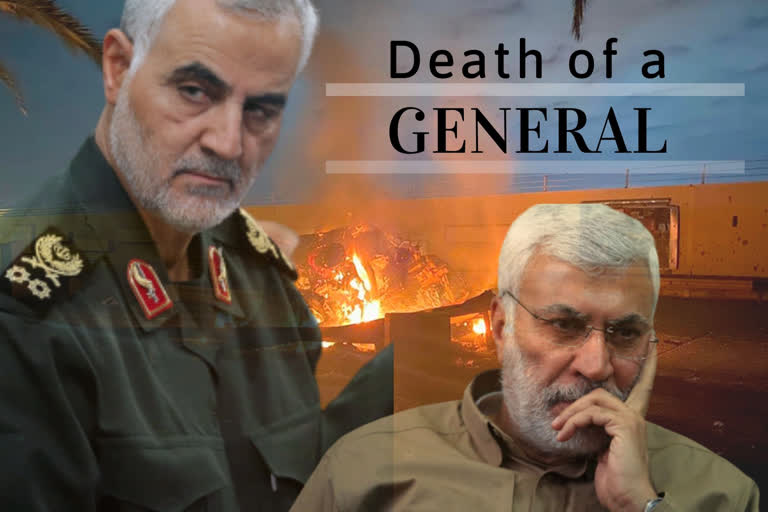Hyderabad: Iran’s elite Quds Force chief and architect of its regional security apparatus General Qassem Soleimani was killed in an airstrike by the US forces on Friday. The airstrike also claimed the life of Abu Mahdi al-Muhandis, deputy commander of Iran-backed militias in Iraq known as the Popular Mobilization Forces.
Who's Qassem Soleimani
For Iranians whose icons since the Islamic Revolution have been stern-faced clergy, Major General Qassem Soleimani widely represented a figure of national resilience in the face of four decades of US pressure.
For the US and Israel, he was a shadowy figure in command of Iran's proxy forces. Soleimani is also responsible for fighters in Syria backing President Bashar Assad and for the deaths of American troops in Iraq.
Solemani survived the horror of Iran’s long war in the 1980s with Iraq and took control of the Revolutionary Guard’s elite Quds Force.
Relatively unknown in Iran until the 2003 US invasion of Iraq, Soleimani's popularity and mystique grew out after American officials calling for his killing.
Soleimani's luck ran out after being rumoured dead several times in his life.
Those incidents included a 2006 airplane crash that killed other military officials in northwestern Iran, a 2012 bombing in Damascus that killed top aides of Assad.
More recently, rumours circulated in November 2015 that Soleimani was killed or seriously wounded leading forces loyal to Assad as they fought around Syria’s Aleppo.
Also Read: Trump ordered killing of Iran Guards commander: Pentagon
Who's Abu Mahdi al-Muhandis
Abu Mahdi al-Muhandis, a veteran Iraqi militant, was the deputy commander of the Popular Mobilization Forces, an umbrella group of mostly Shiite paramilitaries.
Al-Muhandis was also the founder of the Kataeb Hezbollah or Hezbollah Brigades. The US blamed the group, which is separate from the Lebanese Hezbollah movement, for a rocket attack in northern Iraq last week that killed a US contractor.
Al-Muhandis, who had spent much of his life as a secretive operative in Iran's regional shadow wars, emerged as a public face of the force, a tall man with a grey beard and thick glasses who was often seen on the front lines directing his fighters by radio.
Al-Muhandis was also convicted of planning the 1983 bombings against the US and French embassies in Kuwait in which five Kuwaitis were killed.
He was sentenced to death in absentia in Kuwait over the case. He was also linked to a 1985 assassination attempt against the emir of Kuwait.
Al-Muhandis is survived by his Iranian wife and two daughters.
Also Read: Iran's Gen Soleimani killed in air strike at Baghdad airport



